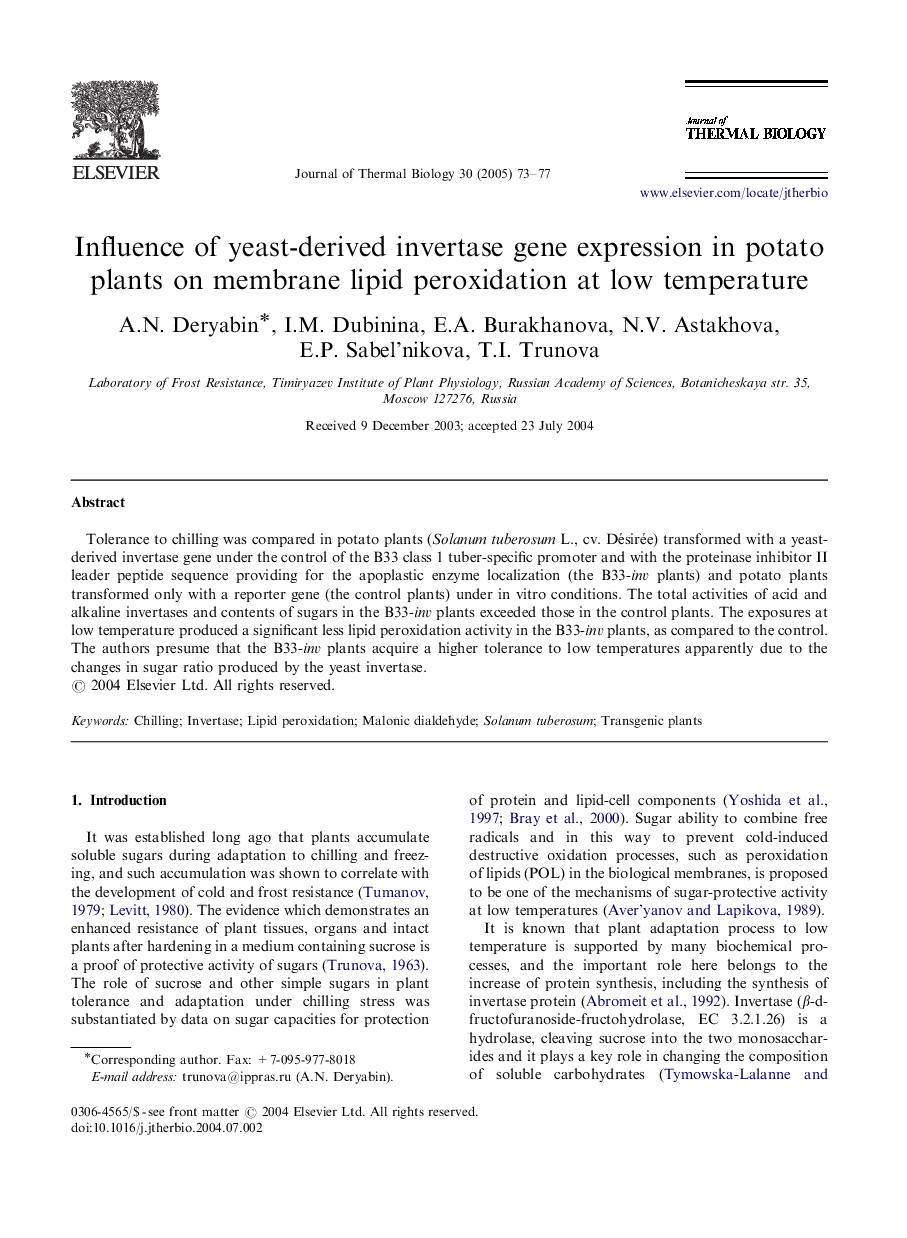| Article ID | Journal | Published Year | Pages | File Type |
|---|---|---|---|---|
| 9148767 | Journal of Thermal Biology | 2005 | 5 Pages |
Abstract
Tolerance to chilling was compared in potato plants (Solanum tuberosum L., cv. Désirée) transformed with a yeast-derived invertase gene under the control of the B33 class 1 tuber-specific promoter and with the proteinase inhibitor II leader peptide sequence providing for the apoplastic enzyme localization (the B33-inv plants) and potato plants transformed only with a reporter gene (the control plants) under in vitro conditions. The total activities of acid and alkaline invertases and contents of sugars in the B33-inv plants exceeded those in the control plants. The exposures at low temperature produced a significant less lipid peroxidation activity in the B33-inv plants, as compared to the control. The authors presume that the B33-inv plants acquire a higher tolerance to low temperatures apparently due to the changes in sugar ratio produced by the yeast invertase.
Related Topics
Life Sciences
Agricultural and Biological Sciences
Agricultural and Biological Sciences (General)
Authors
A.N. Deryabin, I.M. Dubinina, E.A. Burakhanova, N.V. Astakhova, E.P. Sabel'nikova, T.I. Trunova,
